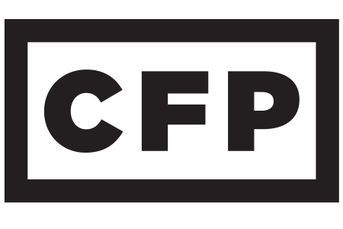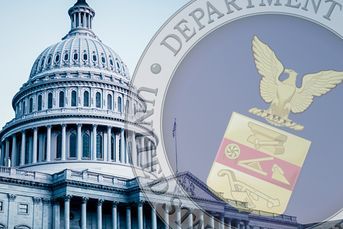Politicians must come together to improve financial security

A lack of effort to find common ground is holding us back, which is why we must hold the president and lawmakers to their promises to change.
President Donald J. Trump spent a good portion of his State of the Union address last Tuesday reminding Americans of a particularly proud moment in our history: the Normandy landings on D-Day in World War II and the subsequent liberation of the Dachau concentration camp.
Presidential commemorations of D-Day have abounded over the decades, from Franklin D. Roosevelt first calling on the nation to join him in prayer for the troops during the invasion, to President Dwight D. Eisenhower’s recollection of the international unity required to pull it off (he’d organized the operation 10 years earlier), all the way up to Barack H. Obama’s remembrance of sacrifice and courage on the 70th anniversary in 2014. And for many presidents in between, the action on those beaches has served as an archetype of America’s potential for greatness. Mr. Trump agreed.
(More: Trump State of the Union: What advisers want to hear)
But it is not only heroics in war that can bring a country together — particularly when issues impacting a large portion of Americans day in and day out have viable solutions if only policymakers would come together. Surely there are things Republicans, Democrats and independents can agree on to improve the financial security of average citizens, for example.
InvestmentNews senior reporter Mark Schoeff Jr. spoke with advisers last week to learn what they most hoped to hear from the president in his address to a divided nation. A few wanted him to celebrate the strong U.S. economy, with its low unemployment and surging stock market. He did do that.
Others wanted to hear Mr. Trump express real urgency and a commitment to addressing persistent financial pain points that both parties seem willing to broach. The president acknowledged that many people in the chamber that night, from both sides of the aisle, had campaigned on such promises as reducing the price of health care and prescription drugs and keeping the pre-existing conditions protection from the Affordable Care Act. The administration did float a proposal Jan. 31 to overhaul prescription drug pricing to square the fact that rebates are offered to insurers and other “middlemen” but not to individuals. If enacted, the rule would apply to federal health programs like Medicare.
Mr. Trump also mentioned including in his budget a plan for nationwide paid family leave for parents of newborns. According to a Pew Research Center analysis of data from the Organization for Economic Cooperation and Development, the U.S. is the only country among 41 developed nations that does not offer some form of paid parental leave.
Tax squabbles
The president mentioned taxes only briefly, including the estate tax, whereas in the Democratic response, Stacey Abrams, who ran a close campaign for the Georgia governorship in 2018, called the Republican tax bill “rigged.” She also said wages were struggling to keep up with the cost of living for many working people. One adviser suggested Congress needs to revisit the limit on the state and local tax deduction. While this wasn’t mentioned in the State of the Union, Mr. Trump did say to reporters last Thursday that he was open to considering changes to SALT — though the Senate Finance Committee was quick to respond that it will not revisit the current allowances under any circumstances.
(More: Limited deduction rubs SALT into taxpayer wounds)
Another development that surfaced the day after the State of the Union looks more promising in terms of partisans coming together to improve Americans’ financial situation. As reported by Mr. Schoeff, the Retirement Enhancement and Savings Act was reintroduced last Wednesday by bipartisan authors, Rep. Ron Kind, D-Wisc., and Rep. Mike Kelly, R-Pa. The legislation would allow small employers to band together to offer workplace plans, clarify how plan sponsors can meet their fiduciary duty when using annuities in 401(k)s, expand auto-enrollment and auto-escalation, and provide lifetime income estimates to investors. The new chairman of the House Ways and Means Committee, Rep. Richard Neal, D-Mass., called the bill a “solid starting point.”
So, there is at least some hope that our elected officials are finally hearing our frustration with the gridlock born of extreme ideologies on both sides of the aisle, which hold hostage even the issues we agree on.
“Together we can break decades of political stalemate,” Mr. Trump said at the State of the Union. “We can bridge … old divisions, heal old wounds, build new coalitions, forge new solutions and unlock the extraordinary promise of America’s future.”
Hold the president and your lawmakers to this promise, especially as opportunities arise for bipartisan action to better the personal financial situation of Americans.
Learn more about reprints and licensing for this article.








